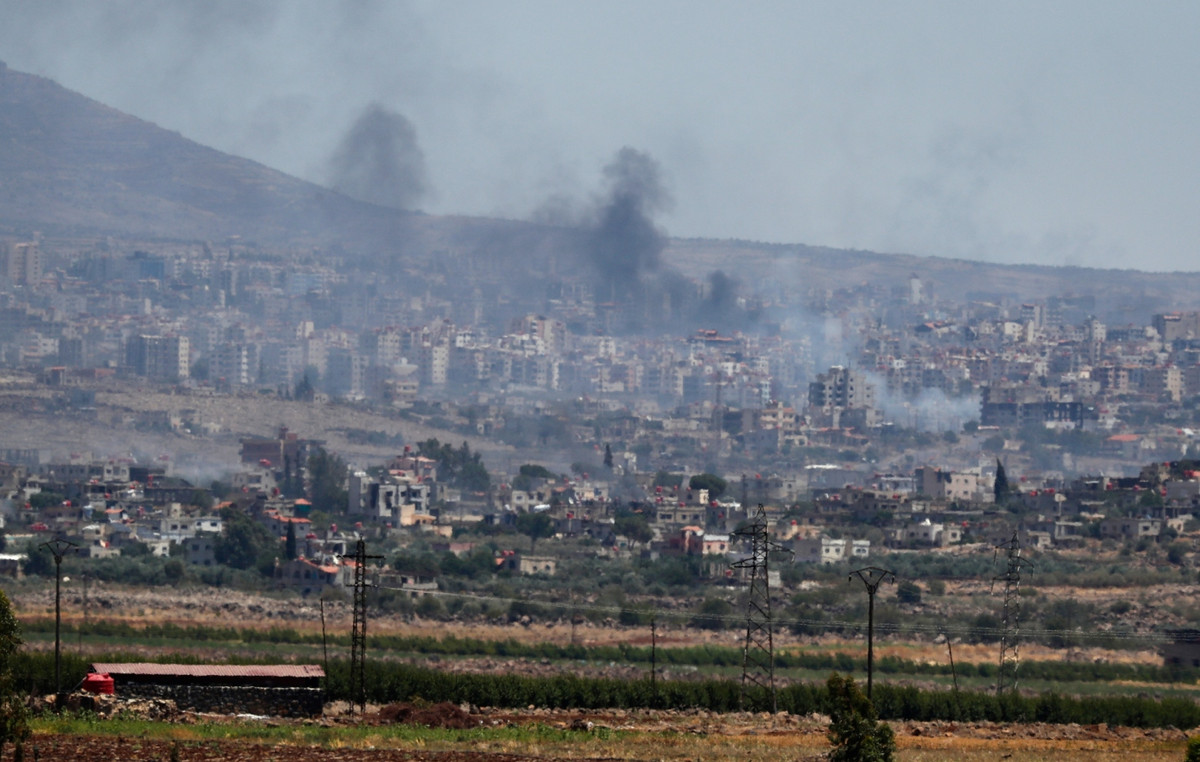Driving through a snow-covered canyon, the young mother huddles with her six children in the backseat of a car. She has just left a makeshift camp in northwestern Afghanistan.
Carrying only a blanket to keep warm, 9-year-old Parwana Malik balances on her mother’s lap with her siblings as the family is rescued by an aid group that saves the girls from child marriage.
“I’m very happy,” Parwana said during the trip. “The (charity organization) got rid of my husband and my husband is old.” Last month, the CNN International reported that Parwana and several other underage girls were being sold by their parents so that other members of their families could eat.
At the time, Parwana’s father, Abdul Malik, said she cried day and night, begging him not to sell her, saying she wanted to go to school and study.
After an international outcry as a result of reporting by the CNN, Parwana was returned to her family due to the community’s reaction against the buyer. A non-profit organization based in the United States, Too Young to Marry (TYTW) also got involved to relocate the girls, their siblings and their mothers to a safe house.
“It’s a temporary solution,” said Stephanie Sinclair, the founder of TYTW. “What we’re trying to do is stop girls from being sold into marriage.”
Afghanistan under pressure
Aid lines to Afghanistan have been cut since August, when the Taliban took control after US and allied forces left the country. Billions of dollars in central bank assets have been frozen, banks are running out of cash and salaries have not been paid for months.
Today, aid agencies and human rights groups, including Human Rights Watch, are warning that the country’s poorest people are facing hunger as they face the country’s brutal winter.
More than half of the population of some 39 million Afghans will face emergency levels of acute famine by March, according to a recent IPC report, which assesses food insecurity. The report estimates that more than 3 million children under the age of five are already suffering from acute malnutrition.
“The international community is turning its back as the country teeters on the brink of man-made catastrophe,” said Dominik Stillhart, director of operations for the International Committee of the Red Cross (ICRC), who has just returned from a six-day visit to Afghanistan.
Even before the Taliban took over, famine was rife in the impoverished country. Now, girls are paying the price with their bodies — and their lives.
“Afghan girls are becoming the currency of exchange for food,” Afghan women’s rights activist Mahbouba Seraj told CNN. “Because otherwise their families will starve.”
“Usually there is a lot of misery, there is a lot of mistreatment, there is a lot of abuse involved”
Mahbouba Seraj, women’s rights activist
While marrying children under the age of 15 is illegal across the country, it has been common practice for years, especially in the more rural parts of Afghanistan. And the situation has worsened since August, with families becoming more desperate.
“Usually there is a lot of misery, a lot of abuse, a lot of abuse involved,” Seraj said, adding that some girls forced into marriage die in childbirth because their bodies are too small to support a full pregnancy. “Some can’t take it. Most die very young.”
Women have long been treated as second-class citizens in Afghanistan, which has been ranked the worst country in the world for women in the Georgetown Institute’s 2021 Women, Peace and Security Index.
Since the Taliban took over, many of the basic rights that women have fought for over the past two decades have been extinguished.
Limits have been placed on girls’ education, women have been banned from certain workplaces, and actresses can no longer appear in TV soap operas.
escape from servitude
After a four-hour journey over mountain roads, Parwana’s family arrived late at night at a small hotel in Herat, Afghanistan’s third-largest city. They were accompanied on their journey by a local representative from Too Young to Wed, along with their mother, Reza Gul, and their brother, Payinda.
Reza Gul and Payinda told the CNN that Parwana’s father initiated her sale against their will. “Of course I got angry, I fought with him and cried,” said Reza Gul. “He said he didn’t have a choice.”
A CNN received permission to film the sale of Parwana on Oct. 24 to a 55-year-old man with white hair in exchange for money, sheep and land worth about $2,200 (about 200,000 afganis or R$11,300).
“My father sold me because we don’t have bread, rice and flour,” Parwana told CNN at the time. “He sold me to an old man.”
The buyer, Qorban, told the CNN that it would be her “second marriage” and insisted that Parwana would be treated with kindness.
Parwana’s mother said her daughter begged to return to her family home and was allowed some visits back to the camp.
“She said they beat her and she didn’t want to stay there,” said Reza Gul.
“They treated me badly. They kept calling me names. They woke me up early and forced me to work”
Parwana Malik, former child engaged
“They treated me badly, they kept calling me names, waking me up early and making me work,” added Parwana.
After the report of CNN about Parwana’s situation aired, the community’s outrage at the Qorban buyer led him into hiding, according to the family. Since then, the CNN was unable to contact him or his family for comment.
In a later interview, Parwana’s father said he was also criticized and felt pressured to change his view of marriage in interviews with some local media. He confirmed his original interview with CNN and apologized.
About two weeks after her sale, Parwana was returned to the family, but her father still owes the buyer the equivalent of $2,200. He had used the amount to pay off other debts.
“They gave me a new life”
Parwana and her five siblings were initially tired from the long drive and sensory overload from the bright lights and traffic of the city. But once settled, they soon began to roll and laugh together in bed, enjoying their new adventure.
After two nights at the hotel, the family was transferred by the NGO TYTW to a nearby hideout. It was Parwana’s first experience of living in a real house. In the last four years,
the family lived in a tent in a camp for internally displaced persons (IDPs) in Qala-e-Naw, Badghis province.
“I am so happy in this house,” Parwana told CNN. “They gave me a new life.”
“I’m happy and safe here”, completed the mother, Reza Gul. “My children have been eating well since we arrived, they are playing and we are happy”.
The family will stay at the home during the winter months and will be supported and protected by TYTW, which routinely performs this type of rescue.
The long-term plan for the Parwana family is not yet clear, added Stephanie Sinclair of TYTW, and will depend on funding for the shelter.
“It is a moral imperative that the international community not abandon the women and girls of Afghanistan,” Sinclair noted. “All lives matter, and the lives we can save will enhance the experience of your entire family and community.”
Separately, TYTW is also trying to bring food aid to the Qala-e-Naw camp, which is home to about 150 people. The aim is also to help Parwana’s father while he remains there to try to pay off his debt. He gave TYTW permission to relocate his wife and children.
“We are happy that Parwana has been rescued,” the father said before his family left. “We are happy that (TYTW) will help us and they will give us a place to live.”
“Tip of the iceberg”
Families across Afghanistan are facing similar desperate financial situations.
The report of CNN it also profiled two families in the province of Ghor, in northwestern Afghanistan, who were preparing to sell their daughters.
10-year-old Magul was days away from being sold to get married when the report aired. She had threatened to kill herself if the sale went through.
Sales are on hold and TYTW is working to try to rescue the two girls along with their mothers and brothers – and relocate them to the same shelter where Parwana’s family now lives.
Women’s rights activists like Mahbouba Seraj, who runs a shelter for women and girls in Kabul, say the worst is yet to come for Afghanistan’s women.
“It’s just the beginning, it’s just the tip of the iceberg,” Seraj lamented. “This will continue to happen, with hunger, winter, misery, with all this ignorance.”
A local Taliban leader told the CNN that they are trying to end the illegal practice of child marriage.
Mawlawi Baz Mohammad Sarwary, head of the Badghis Information and Culture Directorate, described the practice as “common” in the area due to extreme poverty.
“Child marriage is not a good thing and we condemn it. Some are forced because they are poor,” said Sarwary.
He also called on international groups and governments to send help to save families from starvation.
“We want their help for the Badghis people,” said Sarwary. “Let’s give them security; we will coordinate with them and they are all allowed to work”.
Stillhart of the Red Cross says governments urgently need to release funds to Afghanistan to prevent hospitals and basic services from collapsing.
“I urge the international community to find solutions that enable these essential services to be maintained,” said Stillhart. “This requires an injection of liquidity and cash because the entire Afghan economy has shrunk by a staggering 40% since the end of August because of the suspension of bilateral aid.”
Non-profit organizations still operating in Afghanistan are also calling for more coordinated action to help the country’s poorest people.
At the local market in Herat, TYTW helped Parwana’s family collect food and kitchen supplies.
“We spent every night awake because of hunger,” said Parwana’s mother, Reza Gul. “Now we are happy that this charity helped us and brought us to Herat.”
Now free from spending her past life with a husband six times her age, Parwana is excited about the prospect of going to school.
“I would like to study to become a doctor,” Parwana said. “I would like to study to serve my people”.
For those fighting for women’s rights in Afghan society, Parwana’s determination to achieve a better future for her and her country offers a glimmer of hope for the next generation.
Jessie Yeung and Jadyn Sham of CNN contributed to the story.
(*Translated text. Click here to read the original in English)
Reference: CNN Brasil
I’m James Harper, a highly experienced and accomplished news writer for World Stock Market. I have been writing in the Politics section of the website for over five years, providing readers with up-to-date and insightful information about current events in politics. My work is widely read and respected by many industry professionals as well as laymen.







